Buy maine coon – Embark on a journey to discover the captivating world of Maine Coons, the gentle giants known for their regal appearance and affectionate nature. This comprehensive guide will equip you with the knowledge and insights to make an informed decision about bringing one of these majestic felines into your life.
From exploring their distinctive physical characteristics and charming personality traits to understanding their unique needs and care requirements, this guide will provide you with everything you need to know about owning a Maine Coon.
Maine Coon Breed Overview
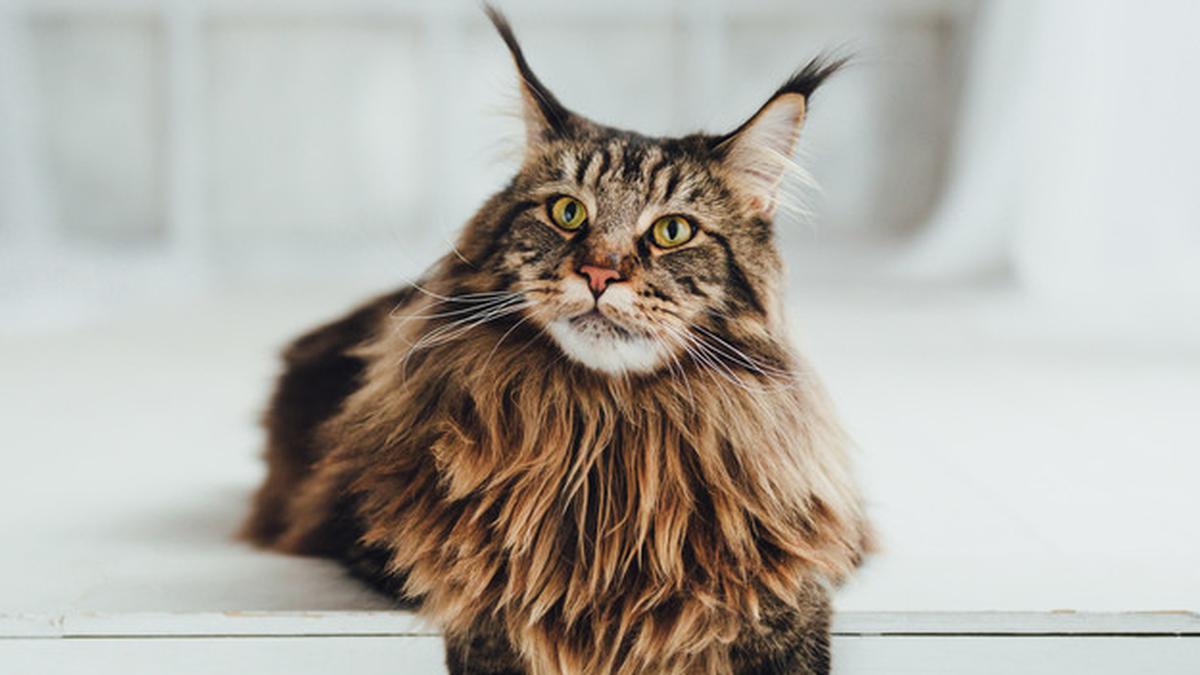
The Maine Coon is a large, semi-longhaired breed of cat with a distinctive physical appearance and personality. They are known for their large size, thick, shaggy coats, and bushy tails.
Physical Characteristics
- Size:Maine Coons are one of the largest breeds of cats, with males typically weighing 13-18 pounds and females weighing 8-12 pounds.
- Coat:Maine Coons have a thick, shaggy coat that is water-resistant. The coat comes in a variety of colors and patterns, but the most common color is brown tabby.
- Tail:Maine Coons have a long, bushy tail that they often carry high in the air. The tail is covered in long, flowing fur that gives it a distinctive appearance.
Personality and Temperament
- Personality:Maine Coons are known for their friendly and gentle personalities. They are often described as “gentle giants” and are great with children and other pets.
- Temperament:Maine Coons are generally laid-back and easygoing cats. They are not known to be aggressive or territorial, and they make great companions for families with children.
Origin and History
The exact origin of the Maine Coon is unknown, but there are several theories about how they came to be. One theory is that they are descended from longhaired cats that were brought to North America by the Vikings in the 10th century.
Another theory is that they are the result of a cross between a domestic cat and a bobcat.
Whatever their origin, Maine Coons have been a popular breed in the United States for centuries. They were first recognized by the Cat Fanciers’ Association in 1953, and they remain one of the most popular breeds of cats today.
Factors to Consider Before Buying
Before making the decision to bring a Maine Coon into your home, it’s essential to consider several factors that can impact your experience and the well-being of the cat. These include potential health issues, the costs involved, and the importance of finding a reputable breeder.
Potential Health Issues
Maine Coons are generally healthy cats, but like all breeds, they are prone to certain health conditions. These include:
- Hypertrophic cardiomyopathy (HCM):A condition in which the heart muscle thickens, leading to heart failure.
- Polycystic kidney disease (PKD):A condition in which cysts develop in the kidneys, leading to kidney failure.
- Hip dysplasia:A condition in which the hip joint does not develop properly, leading to pain and lameness.
It’s important to be aware of these potential health issues and discuss them with your veterinarian before bringing a Maine Coon into your home.
Costs Involved
Owning a Maine Coon can be expensive. The initial cost of purchasing a kitten from a reputable breeder can range from $600 to $1, 200. In addition, you will need to factor in the costs of:
- Food:Maine Coons are large cats and require a high-quality diet. The cost of food will vary depending on the brand and type of food you choose.
- Vet care:Maine Coons require regular veterinary checkups, vaccinations, and parasite prevention. The cost of vet care will vary depending on your location and the specific services you need.
- Grooming:Maine Coons have long, thick coats that require regular grooming. The cost of grooming will vary depending on the frequency of grooming and the type of services you choose.
It’s important to budget for these costs before bringing a Maine Coon into your home.
Importance of Finding a Reputable Breeder
When looking for a Maine Coon kitten, it’s important to find a reputable breeder. A reputable breeder will be able to provide you with information about the kitten’s health, temperament, and lineage. They will also be able to answer any questions you have about the breed.
To find a reputable breeder, you can ask for recommendations from your veterinarian, local cat club, or online cat forums. You can also visit cat shows to meet breeders and learn more about their cats.
Finding a Reputable Breeder
Identifying a reputable breeder is crucial for acquiring a healthy and well-bred Maine Coon. Look for breeders who prioritize the health and well-being of their cats, follow ethical breeding practices, and are knowledgeable about the breed.
Visiting the breeder’s facility is highly recommended. Observe the cats’ living conditions, cleanliness, and overall health. A reputable breeder will maintain a clean and spacious environment, with cats that are well-socialized and free from any signs of illness.
Breeder’s Responsibilities
- Provide a health guarantee for the kitten.
- Screen breeding cats for genetic diseases.
- Socialize and handle kittens early on.
- Offer support and guidance to new owners.
Buyer’s Rights
- Ask questions about the kitten’s health and lineage.
- Review the breeder’s contract thoroughly.
- Receive a written health guarantee.
- Expect ongoing support from the breeder.
Choosing a Kitten
Selecting the perfect Maine Coon kitten is a crucial step in ensuring a lifelong bond with your feline companion. Here’s a comprehensive guide to help you make an informed decision:
Age and Characteristics, Buy maine coon
The ideal age to bring home a Maine Coon kitten is between 12 and 16 weeks. At this age, they are fully weaned, socialized with their littermates, and have received their initial vaccinations. Look for kittens with bright eyes, a clean coat, and an active, playful demeanor.
Avoid kittens that appear lethargic, have runny eyes or noses, or show signs of aggression.
Socialization
Socialization is essential for Maine Coon kittens. Expose them to various experiences, such as handling by different people, playing with toys, and interacting with other animals. This will help them develop into well-adjusted, confident cats. Avoid kittens that are shy or fearful of strangers.
Health Checks and Vaccinations
Before taking your kitten home, ensure they have received a thorough health check from a veterinarian. This should include a physical exam, deworming, and age-appropriate vaccinations. The veterinarian can also provide guidance on ongoing care and vaccination schedules.
Preparing Your Home
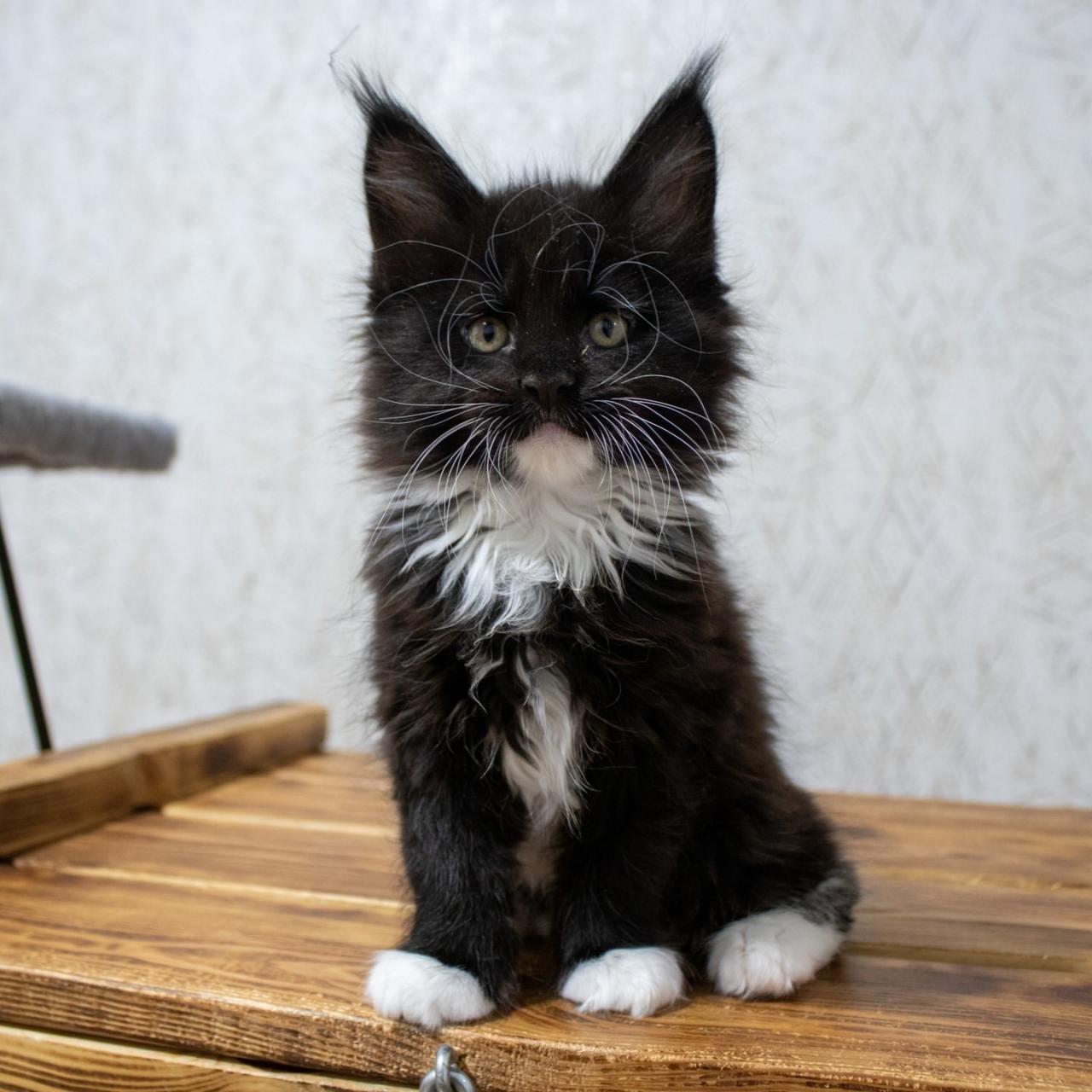
Before bringing a Maine Coon kitten home, it’s essential to prepare a welcoming and safe environment. This involves gathering necessary supplies and kitten-proofing your living space to ensure their well-being and comfort.
Essential Supplies
Provide a complete set of essential supplies to cater to your kitten’s basic needs:
- Food and water bowls: Choose shallow, wide bowls to prevent whisker fatigue.
- Litter box: Select a spacious litter box with low sides for easy access.
- Scratching post: Offer a sturdy scratching post to encourage natural scratching behavior and protect furniture.
- Bedding: Provide a comfortable bed or blanket for sleeping and cuddling.
- Toys: Engage your kitten with a variety of toys, including interactive and stimulating ones.
- Grooming tools: Brush your kitten regularly with a slicker brush and comb.
- Nail clippers: Trim your kitten’s nails regularly to prevent scratching.
Kitten-Proofing Your Home
To ensure a safe environment for your kitten, follow these kitten-proofing measures:
- Secure electrical cords: Hide or bundle electrical cords to prevent chewing or entanglement.
- Remove toxic plants: Keep poisonous plants out of reach, as they can be harmful if ingested.
- Block access to dangerous areas: Close off areas with potential hazards, such as balconies, stairwells, and cleaning supplies.
- Provide high places: Offer cat trees or shelves where your kitten can climb and feel secure.
- Supervise windows: Keep windows closed or install screens to prevent falls.
Creating a Safe and Comfortable Environment
Beyond physical safety, it’s crucial to create a comfortable and stress-free environment for your Maine Coon. This includes:
- Provide hiding places: Offer cozy nooks or enclosed spaces where your kitten can retreat when feeling overwhelmed.
- Establish routines: Stick to regular feeding, playtime, and grooming schedules to provide stability and predictability.
- Introduce new things gradually: Avoid overwhelming your kitten with too many changes at once. Gradually introduce new objects, scents, or people.
- Handle with care: Treat your kitten gently and avoid sudden movements or loud noises.
- Provide companionship: Maine Coons are social creatures, so consider getting another cat or providing ample playtime to prevent loneliness.
Caring for Your Maine Coon: Buy Maine Coon
Providing a nurturing environment for your Maine Coon is crucial for their well-being. Establishing a consistent feeding and grooming schedule, along with regular veterinary checkups, ensures their health and happiness. Additionally, understanding potential breed-specific health issues and implementing appropriate management strategies is essential for their longevity and quality of life.
Feeding and Grooming
A balanced diet tailored to your Maine Coon’s age, weight, and activity level is essential. High-quality commercial cat food or a homemade diet approved by your veterinarian should form the foundation of their nutrition. Feed your Maine Coon at regular intervals to prevent overeating or weight gain.
Regular grooming is essential for maintaining your Maine Coon’s long, luxurious coat. Brush their fur several times a week to remove dead hair and prevent mats. Bathe your Maine Coon as needed, using a gentle cat shampoo and lukewarm water.
Trim their nails regularly to prevent overgrowth and scratching.
Veterinary Checkups
Regular veterinary checkups are crucial for early detection and treatment of any health issues. Schedule routine checkups every six to twelve months, depending on your Maine Coon’s age and health status. These checkups include a physical examination, vaccinations, and parasite control.
Additionally, if you notice any changes in your Maine Coon’s behavior, appetite, or appearance, contact your veterinarian promptly for further evaluation.
Breed-Specific Health Issues
While Maine Coons are generally healthy cats, they may be predisposed to certain health issues, including:
- Hypertrophic cardiomyopathy (HCM):A condition where the heart muscle thickens, leading to heart failure. Screening with echocardiograms is recommended.
- Polycystic kidney disease (PKD):A condition where cysts develop in the kidneys, potentially leading to kidney failure. Genetic testing is available to identify affected cats.
- Hip dysplasia:A condition where the hip joint does not develop properly, causing pain and lameness. Screening with X-rays is recommended.
Early detection and management of these conditions can significantly improve your Maine Coon’s quality of life and longevity. Discuss these health concerns with your veterinarian to develop an appropriate preventive care plan.
Training and Behavior
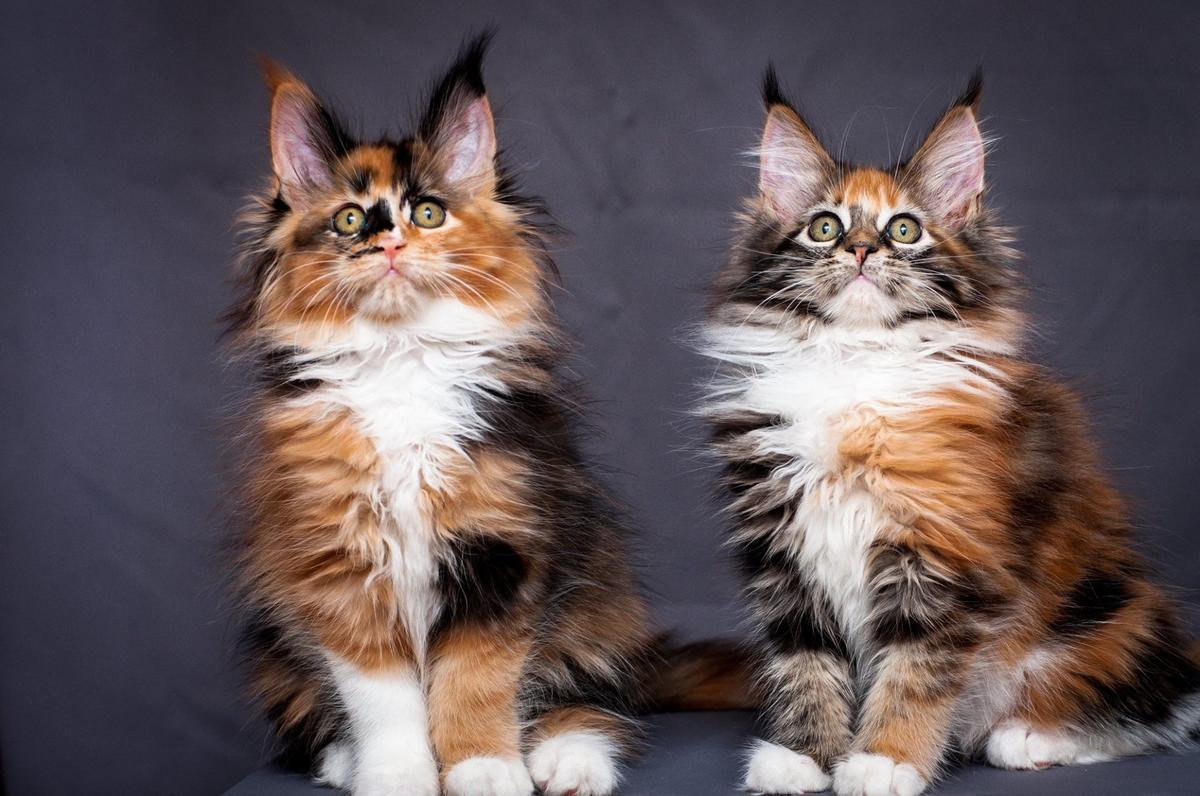
Maine Coons are generally intelligent and trainable cats. They respond well to positive reinforcement, such as treats, praise, and petting. Here are some tips for training a Maine Coon:
- Start training early, when your kitten is between 8 and 16 weeks old.
- Keep training sessions short and fun, no more than 5-10 minutes at a time.
- Use positive reinforcement to reward your cat for desired behaviors.
- Be patient and consistent with your training.
Common behavioral issues in Maine Coons include:
Scratching
Provide your cat with plenty of scratching posts and encourage them to use them by rubbing catnip on them.
Biting
If your cat bites, yelp loudly and withdraw your hand. Do not hit or punish your cat, as this will only make the problem worse.
Spraying
Spaying or neutering your cat can help reduce spraying. If your cat is still spraying, talk to your veterinarian about other options.
Enrichment and Exercise
Maine Coons are highly intelligent and active cats that require ample enrichment and exercise to thrive. This not only keeps them physically and mentally stimulated but also helps prevent boredom and destructive behaviors.
Providing a variety of enrichment activities is crucial for Maine Coons. These activities should cater to their natural instincts and provide opportunities for exploration, play, and problem-solving.
Table: Enrichment Activities for Maine Coons
| Activity | Benefits |
|---|---|
| Interactive toys | Stimulates hunting instincts, provides mental and physical exercise |
| Puzzle feeders | Encourages problem-solving, prevents boredom |
| Catnip | Provides temporary euphoria, encourages play |
| Scratching posts and pads | Provides a healthy outlet for scratching, prevents furniture damage |
| Cat trees and climbing structures | Encourages climbing, provides a safe and elevated perch |
| Window perches | Provides a safe and stimulating way to watch the outdoors |
In addition to enrichment activities, providing plenty of exercise is essential for Maine Coons. Regular play sessions, interactive toys, and games encourage physical activity and help prevent obesity. Interactive toys, such as laser pointers, feathered wands, and ball-in-a-track toys, provide both mental and physical stimulation.
Games like fetch or hide-and-seek can also be great ways to engage their playful nature.
Additional Resources
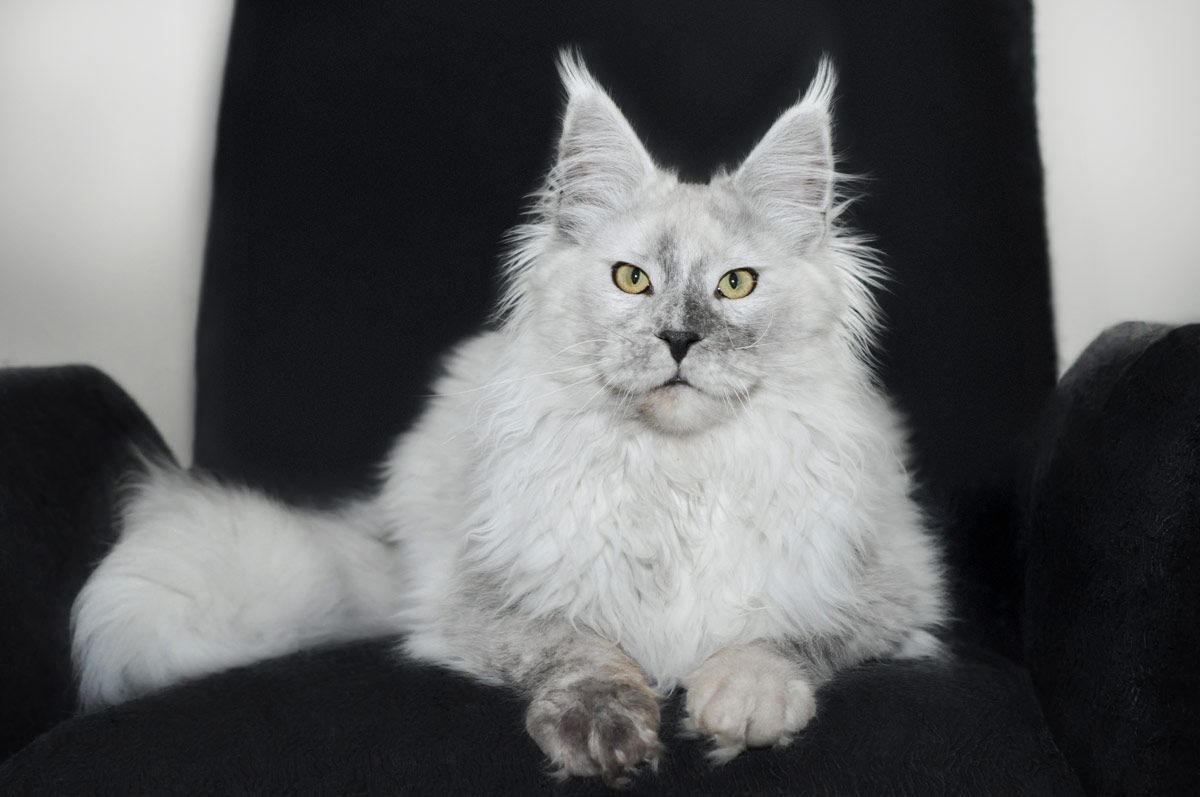
Expand your knowledge and support network for your Maine Coon with these valuable resources.
Whether you’re seeking in-depth information, reliable veterinary care, or opportunities to connect with fellow enthusiasts, the following websites, books, and organizations are invaluable.
Maine Coon Websites
- Maine Coon Central: A comprehensive website dedicated to all things Maine Coon, featuring breed information, breeder listings, and a vibrant community forum.
- Maine Coon Breeders and Fanciers Association: The official website of the largest Maine Coon registry, offering breeder directories, show schedules, and breed standards.
- Maine Coon Nation: A popular online community for Maine Coon owners, providing a wealth of information, photos, and support.
Books
- Maine Coon Cats: A Complete Owner’s Guideby Susan Kelley: A comprehensive guide to all aspects of Maine Coon care, from choosing a kitten to senior years.
- The Maine Coon: The Gentle Giantby Stephen D. Cole: A photographic tribute to the beauty and personality of the Maine Coon breed.
Organizations
- Maine Coon Rescue: A national organization dedicated to rescuing and rehoming abandoned or neglected Maine Coons.
- Maine Coon Preservation Society: A nonprofit organization working to preserve the genetic diversity and health of the Maine Coon breed.
Veterinary Clinics
- Maine Veterinary Medical Center: A state-of-the-art veterinary clinic specializing in feline care, including Maine Coons.
- Animal Medical Center of New York: A renowned veterinary hospital with a dedicated team of feline specialists.
- The Cat Hospital of Philadelphia: A specialized veterinary clinic offering comprehensive care for cats, including Maine Coons.
Case Studies and Success Stories
Owning a Maine Coon is a rewarding experience that comes with its own set of challenges. Here are some personal stories from Maine Coon owners about their experiences, highlighting the unique traits and contributions of this remarkable breed.
Challenges and Rewards
- Grooming:Maine Coons have long, thick fur that requires regular brushing to prevent mats and tangles. This can be time-consuming, but it’s essential for maintaining their beautiful coat.
- Shedding:Maine Coons shed heavily, especially during seasonal changes. This can be a challenge for those with allergies or who dislike pet hair around the house.
- Health issues:Like all breeds, Maine Coons are prone to certain health conditions, such as hypertrophic cardiomyopathy (HCM) and polycystic kidney disease (PKD). Regular veterinary checkups and screenings are important for early detection and management.
- Affectionate and playful:Maine Coons are known for their affectionate and playful nature. They enjoy spending time with their humans and are often described as “gentle giants.”
- Intelligent and trainable:Maine Coons are highly intelligent and can be trained to perform various tricks and commands. They are also known for their problem-solving abilities.
- Lifespan:Maine Coons have a relatively long lifespan of 12-15 years, providing their owners with many years of companionship.
Notable Maine Coons
- Coon Cat:The first registered Maine Coon, who lived in the late 1800s and early 1900s, was known for his large size and distinctive appearance.
- Mr. Bojangles:A Maine Coon who held the Guinness World Record for the longest cat (48.5 inches) from 1990 to 2004.
- Smudge:A Maine Coon who became an internet sensation due to his distinctive markings and grumpy expression.
- Pip the Maine Coon:A therapy cat who has helped countless people with autism, anxiety, and other challenges.
Conclusive Thoughts
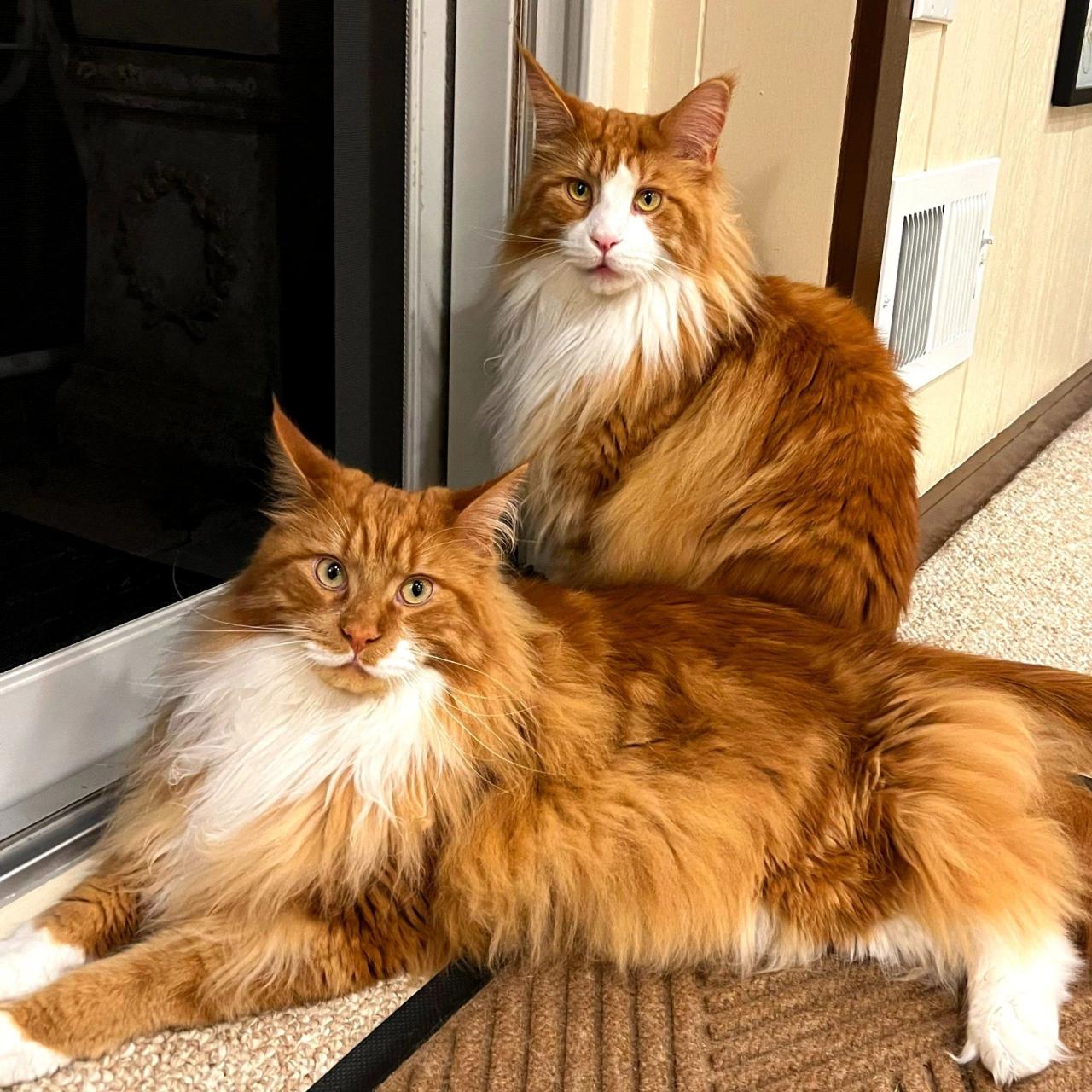
Whether you’re a seasoned cat enthusiast or a first-time pet owner, this guide will empower you with the confidence to provide a loving and fulfilling home for your Maine Coon companion. Their unwavering loyalty, playful antics, and unwavering affection will undoubtedly enrich your life in countless ways.
